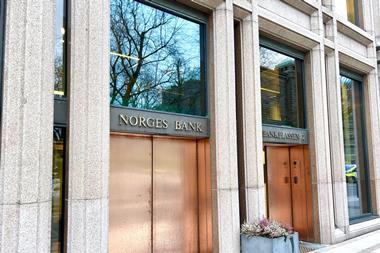Energy giant ExxonMobil is to pay the Dutch section in its Belgium-based pension fund €250m to make up for a funding shortfall caused by the COVID-19 pandemic.
In a newsletter, the scheme said that collapsing equity markets and falling interest rates had led to its funding ratio dropping to 92% in the first quarter of the year.
The payment is meant to raise the funding level of the €3bn Dutch segment of the ExxonMobil OFP to 100%.
However, under Belgian pension rules, a 100% funding means a full coverage of liabilities including a 20% financial buffer, explained Gerda Shultz, chair of the scheme’s executive board.
She added that a 92% funding would equate to a coverage ratio of approximately 112% under Dutch rules.
ExxonMobil has a long-standing arrangement of supplementing the pensions for its Dutch participants to 100% at the end of each quarter, while creaming off any surplus at year-end.
In the wake of the financial crisis, it paid an additional €550m, followed by €280m in 2011. Last year, the pension fund paid the company a €100m funding surplus.
The pension fund said the employer’s deposit is expected to be incorporated into its rebalancing process, which had been postponed in March because of volatility and limited liquidity. Due to the current crisis, its strategic equity allocation of 30% had dropped to 25%.
ExxonMobil is among a couple of dozens of companies in the Netherlands that have committed to funding shortfalls in their pension funds.
Shultz added that ExxonMobil OFP’s €450m segment for Belgian pensions still had a funding ratio of just over 100%, including a financial buffer of 20%.
She said the €75m section for French pensions – added to the OFP last year – was more than sufficiently funded.
According to Shultz, any funding shortfall for Belgian and French pensions in ExxonMobil OFP would be filled based on the situation at year-end.
Other companies in the Netherlands committing to funding shortfalls include Shell, Unilever, Ahold Delhaize, TNT Express, General Electric, Dow, Mercer and Aon.
However, the scale of most supplementary payments is also based on their schemes’ funding at year-end.
ExxonMobil relocated its Dutch pensions to Belgium in 2017, in part because it didn’t agree with the mandatory introduction of a supervisory board in the Netherlands. That said, the Belgium-based scheme is still subject to Dutch fiscal and social rules.
Its chair said it was worried about the new pensions system in the Netherlands, as the expected introduction of defined contribution arrangements will likely be at odds with the concept of supplementary payments.
The same goes for the possible mandatory merging of existing pension rights – accrued under current defined benefit plans – and future DC arrangements.
The pension fund also said the employer and the works council (OR) had set up a working group tasked with assessing how current arrangements can be kept in a new pensions system.
Other companies with generous pension plans, including Shell, have also warned of the impact of a new pensions system on their schemes.










